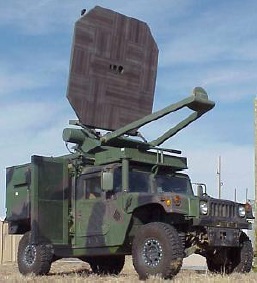 The face of modern warfare is about to change. Rod Flower, a professor of biochemical pharmacology at Queen Mary University of London, said in Reuters interview, “We know neuroscience research has the potential to deliver great social benefit-researchers come closer every day to firing effective treatments for diseases and disorders such as Parkinson’s, depression, schizophrenia, epilepsy, and addiction. However, understanding of the brain and human behavior, coupled with developments in drug delivery, also highlight ways of degrading human performance that could possibly be used in new weapons.” Manipulated shockwaves inflicting pains on enemy, chemical stimuli for brain performance, and everything that seemed only to exist in science fictions may soon come true.
The face of modern warfare is about to change. Rod Flower, a professor of biochemical pharmacology at Queen Mary University of London, said in Reuters interview, “We know neuroscience research has the potential to deliver great social benefit-researchers come closer every day to firing effective treatments for diseases and disorders such as Parkinson’s, depression, schizophrenia, epilepsy, and addiction. However, understanding of the brain and human behavior, coupled with developments in drug delivery, also highlight ways of degrading human performance that could possibly be used in new weapons.” Manipulated shockwaves inflicting pains on enemy, chemical stimuli for brain performance, and everything that seemed only to exist in science fictions may soon come true.
A report published on the Royal Society, the United Kingdom’s national academy of science, incorporated opinions of experts from neuroscience, international security, psychology, and ethics. It first suggested that neuroscience had two potential functions in warfare: one to increase the brain functionality of military forces and one to deteriorate the performance of enemy.
Concerning the brain performance improvement, the report focused on the progresses in neural interface technology. Often called a brain-computer interface (BCI) or mind-machine interface (MMI), the technology enables a human brain and external machines to communicate each other. In warfare, aircrafts, missiles, or any type of weaponry with computer can be connected to and directed by human brain, ensuring optimal accuracy of control. Also, advances in neuroimaging and brain mapping will let military chiefs to recruit soldiers with particular strengths and thus build more balanced troops. The report added, “There is also a great deal of research taking place around drugs that improve the alertness, attention, and memory of military personnel while in the field.”
The most significant weapon involving neuroscience in development is Active Denial System (ADS). The ADS shoots a high-powered and high-frequency beam of electromagnetic radiation and is currently being used to disable enemy machinery, including vehicles. With slight modifications and renovations, it can be used to cause imaginary pain on people. Yet, such usage of technology is raising tricky ethical questions. Although the ADS won’t affect the body itself, it may damage the DNA and lead to further complications. As the atomic bomb did, the ADS might generate long-lasting effects on unspecified group of people, which would include innocent citizens.
Malcom Dando, a professor of international security at the University of Bradford, said, “We’re only at the beginning of a whole stream of neuroscience applications, and that vies us a window of opportunity to weigh up the pros and cons.” As all things in the world do, the application of neuroscience in warfare has two opposing aspects. It’s the matter of people’s choice that will determine whether this will lead to another horrible arms race or not.


phwoaar this is awesome! neuroscience in warfare is a coolza topic
anyway-
you have a lot of good information and detail in your article, and especially in a science-centered piece that’s a good thing. but remember that even though it’s a science topic, one should still tie it back in so that students/parents/the audience of the education section of 중앙일보 can relate to it and find it interesting. this means some simplification, explanation of terms (although you did a pretty good job of this), etc.
also i noticed you had some good quotes from the authority figures, but generally it would be awesome if you had quotes from regular joes! even a short quip from a friend or parent can make the article way more interesting (for someone not that interested in this topic). but for this topic, i’m sorta wavering because a random quote from an unrelated person about it could make the flow of the story iffy… i guess it’s really up to your personal judgment ahaha
anyway great job! keep it uppppp